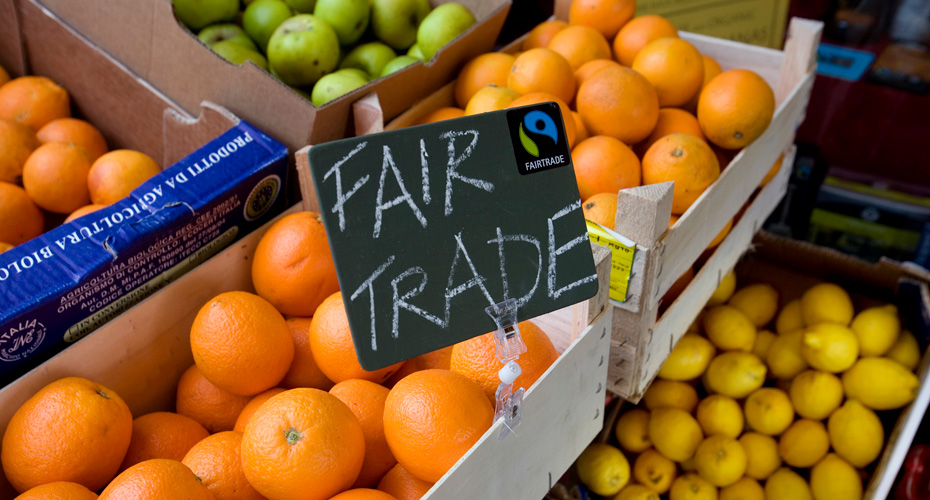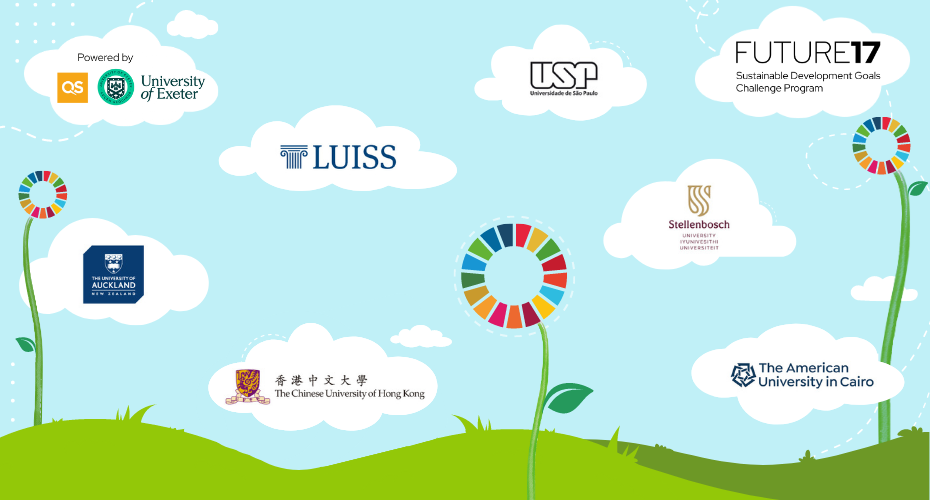Top 10 in the world for our progress towards delivering the UN SDGs in the 2024 THE Impact Rankings
Recognised for our progress towards delivering Clean Water and Sanitation, Responsible Consumption and Production, Zero Hunger, Climate Action, and Life Below Water.
The United Nations Sustainable Development Goals (SDGs) are a set of 17 goals which provide a shared blueprint for sustainable development and a sustainable future, which set out targets to end poverty, protect the planet, and achieve prosperity for all by 2030.
At the University of Exeter, we’re committed using the power of our education and research to create a greener, healthier and fairer future for all. An integral part of this work is our commitment to the UN SDGs. Our strategic vision ensures they are embedded in everything we do to make an impact in the world.
The THE Impact Rankings are the first, and only, global performance tables that assess higher education institutions against all 17 SDGs.
In 2024 we have been ranked as a leader in the following SDGs:
- 1st globally for Clean Water and Sanitation – SDG 6
- 6th globally for Life Below Water – SDG 14
- =7th globally for Responsible Consumption and Production – SDG 12
- 12th globally for Climate Action – SDG 13
- Top 20 globally for Zero Hunger – SDG 2
At the University of Exeter, we seek to use the power of our education and research to create a sustainable, healthy and socially just future. These results show our progress towards our goals which are to:
- Lead meaningful action against the climate emergency and ecological crisis.
- Make key breakthroughs to transform human health and wellbeing.
- Lead progress towards creating a fair, socially just and inclusive society.
Discover our work.
Our approach to the Sustainable Development Goals
The University of Exeter signed the Sustainable Development Goals Accord in 2019, committing to report on the SDGs on an annual basis and embedding the SDGs in everything that we do from our curriculum and research, to wider activities at the University. This is illustrated by our conception and leadership of Future17, the Sustainable Development Goals Challenge Programme. In association with QS, we are bringing together students from across all six continents to work alongside global organisations in virtual groups to develop solutions to help meet the UN’s SDGs.
Alongside being ranked Top 10 in this year’s THE Impact Rankings, we are recognised across 5 more of the UN's SDGs:

SDG13: Climate Action – Ranked 12
Aim: Take urgent action to combat climate change and its impacts
As an organisation we have been recognised for our progress towards achieving SDG 13 (Climate Action) through our leading research partnerships and collaborations, white papers, reports, trainings, and Exeter’s Net Zero by 2030 plan. Our contributions have identified real opportunities to combat climate change and its impacts.

SDG 2: Zero Hunger – Ranked 19
Aim: End hunger, achieve food security and improved nutrition and promote sustainable agriculture
More than 600 million people worldwide are projected to face hunger in 2030. We are working hard to provide interventions to target hunger among our students and staff and promote sustainable food choices across our campuses.

SDG15: Life on Land – Ranked 25
Aim: To conserve life on land, protect and restore terrestrial ecosystems, sustainably manage forests, combat desertification, and halt and reverse land degradation and stop biodiversity loss.
Our Biodiversity Strategy represents a continuing commitment, by the University, to preserve existing important habitats and, where the opportunity arises, create new sustainable habitats. Our Streatham Campus is a registered botanical garden with important landscape and habitat value.

SDG10: Reduced Inequalities – Ranked 34
Aim: Reducing inequalities and ensuring no one is left behind.
A diverse community is an essential part of our core values. We are committed to a policy of equality of opportunity and aim to provide a working, learning and social environment that is free from discrimination.

SDG1: No Poverty – Ranked 81
Aim: To end poverty in all its forms everywhere.
With just over 10% of our students receiving financial aid due to low income, the University has a range of rigorous anti-poverty programmes in place to support not only our students but also the wider community through business support, research and training.










